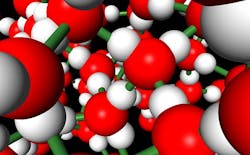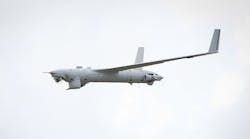Officials of the U.S. Defense Advanced Research Projects Agency have announced four contracts for the Living Foundries: 1000 Molecules project to develop a biology-engineering infrastructure for the U.S. Department of Defense (DOD) and for the engineering biology community.
Contractors selected for the DARPA 1000 Molecules program are Twist Bioscience Corp. in San Francisco; University of Illinois in Urbana, Ill.; Regents of the University of Colorado in Boulder, Colo.; and Massachusetts Institute of Technology (MIT) in Cambridge, Mass.
DARPA and these contractors seek to create a first-of-its-kind infrastructure comprising tools and processes that help with innovation across several applications, and to help push biotechnology forward. The infrastructure will include design algorithms, genetic integration methodologies, and flexible assay systems.
Related: Engineered by nature: UAV designs modeled after biological sources
Twist Bioscience won a $5.1 million contract on 30 April, University of Illinois won a $239,980 contract on 31 March; University of Colorado won a $189,535 contract on 2 April; and MIT won a $124,072 contract on 13 March.
Each center involved in the Molecules 1000 program will produce at last 350 unique molecules of relevance to DOD that will augment today's limited set of chemical building blocks.
Biologically produced molecules are more useful than traditional approaches, DARPA researchers say. Participants are pursuing a rapid design and prototyping infrastructure to bridge the gap from initial, laboratory-level, proof-of-concept experimentation to industrial pilot production.
Related: SAIC to develop sensor based on canine sense of smell for chemical detection
Key technical components will include computers to link component technologies; design tools to engineer novel biosynthetic pathways, gene cluster discovery, and chemical structure prediction; methods for automated construction of genetic designs; design evaluation tools to enable massively parallel testing, analysis, validation, and verification of engineered systems; and feedback tools with high-volume data generation.
Ultimately, rapid design and prototyping facilities should consist of computational and physical infrastructure supporting design, fabrication, validation and quality control, and analysis, the totality of which should be tightly coupled to algorithms for design and processing.
DARPA 1000 has three challenge areas: rapid, improved prototyping of known molecules; prototyping of known, but currently inaccessible, molecules; and prototyping of novel molecules.
Related: GE awarded DARPA grant to develop bio-inspired sensors
At the program’s end, each facility will have produced at least 350 distinct molecules, including at least 45 known, but currently inaccessible, molecules and at least 10 completely novel molecules.
For more information contact Twist Bioscience online at www.twistbioscience.com; University of Illinois at www.igb.illinois.edu; University of Colorado at http://biofrontiers.colorado.edu; or MIT at http://wi.mit.edu.



